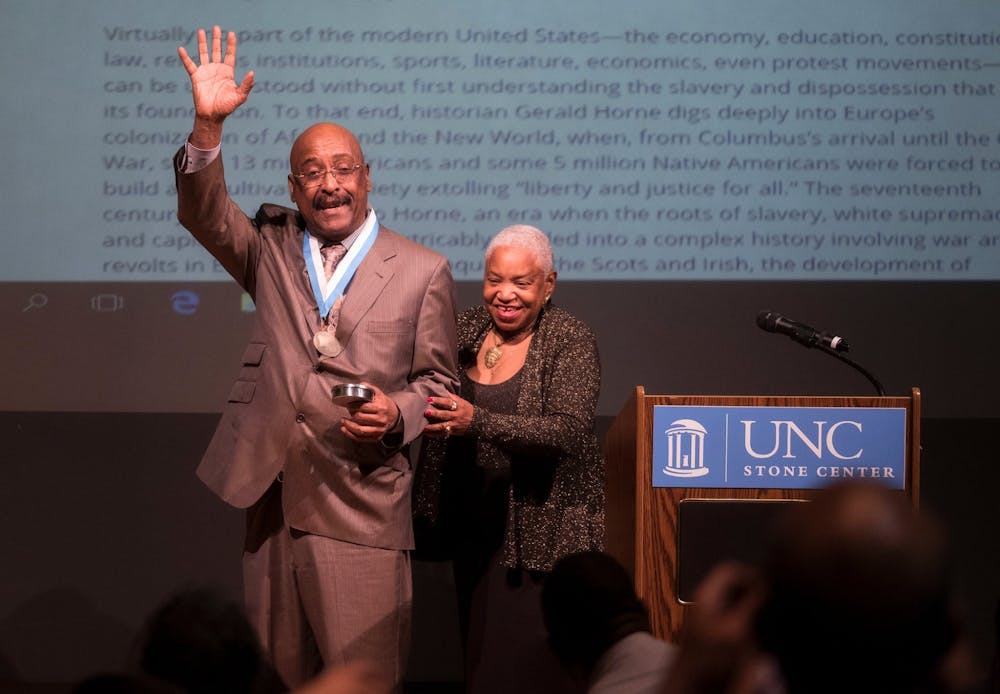Genna Rae McNeil — the first Black tenure-track faculty member in UNC's history department — will retire this semester after working at UNC for 36 years.
McNeil, a professor specializing in African American History with an emphasis on race, law and social movements, joined the history department in 1974. She joined the department under the recommendation of American scholar John Hope Franklin; she was his doctoral student at the University of Chicago.
McNeil said that her parents — Jesse Jai and Pearl Lee Walker McNeil, who both earned doctorate degrees — instilled a fire in her that one should take advantage of opportunities to be the first.
She said this pushed her to be the first African American to take the entrance exam for the Westridge School for Girls in Pasadena, California, and the first African American to graduate from the school in 1965.
“God has placed this power within us to do more than we can even imagine, so we should not be stymied in our struggles and in our challenges,” McNeil said.
Growing up, McNeil excelled in many areas. She became associate editor of her high school newspaper, a singer covering songs by Aretha Franklin in her college band and a Phi Beta Kappa graduate of Kalamazoo College.
She sought justice and truth through her one-person protest in high school of the 1964 California Proposition 14 — which permitted discrimination on racial and ethnic grounds when selling housing. She was also involved with the Black Student Organization at Kalamazoo College, which included demonstrations for hiring Black professors and fair treatment of Black students in work-study.
McNeil said this carried her through her graduate education at the University of Chicago and her first years teaching at UNC. Despite being asked by a student in her class at UNC if she had a degree, she expanded the African American History course from one semester to two.
McNeil resigned from her faculty position in 1979 after returning from a leave of absence. During her leave, she was a visiting professor at the Howard University School of Law and worked on amici curiae briefs for the landmark case of Regents of the University of California v. Bakke.




